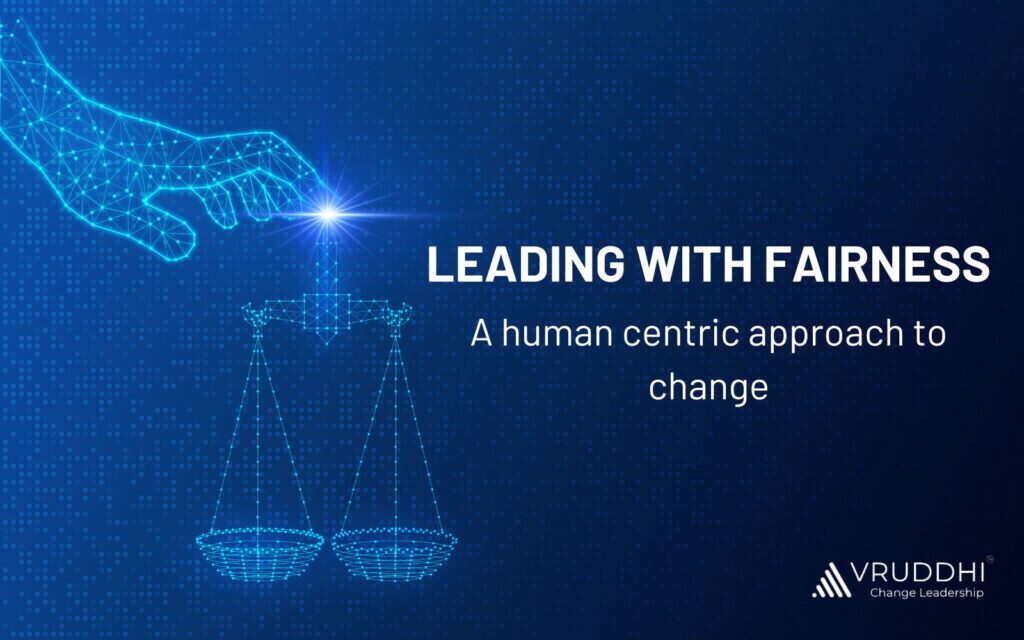Preface:
Never before has the idea of ‘fair process’ been more important for management, than it is today.
Strategic change, often aimed at enhancing organizational efficiency and competitiveness, can trigger anxiety in the system. This anxiety can manifest as defense mechanisms – both individual and collective.
It is under such circumstances that the ‘principles of fairness’ come to the fore. In this blog, we will explore the elements that constitute ‘fair process’ and why it is such a defining character of strategic change, especially one that involves a human cost.
Research on ‘Fair Process’
Excerpts from the HBR article: “Fair Process – Managing in the knowledge economy’ by W. Chan Kim and Renee Mauborgne:
“The systematic study of the fair process emerged only in the mid-1970s, when two social scientists, John Thibaut and Laurens Walker combined their interest in the psychology of justice with the study of process. Focusing their attention on legal setting, they sought to understand what makes people trust a legal system so that they will comply with laws without being coerced into doing so. Their research established that people care as much about the fairness of the process through which an outcome is produced as they do about the outcome itself. Subsequent research demonstrated the power of fair process across diverse cultures and social settings”
Basic Tenets of ‘Fair Process’
1. Engagement – Involvement in the process
This tenet focuses on including employees in the decision-making process by actively seeking their input, ideas, and feedback. Engagement builds psychological ownership, as employees are more likely to commit to outcomes they helped shape. It entails:
- Listening to employees’ perspectives and concerns.
- Encouraging open dialogue and creating a psychologically safe environment for employees to feel safe to voice their opinions.
2. Explanation – clarifying the thinking behind a final decision
This tenet focuses on providing a clear and transparent explanation of the rationale behind a decision. When employees understand the logic behind a decision, they are more likely to perceive it as fair—even if they disagree with the outcome. It includes:
- Communicating the method, and reasoning used in the decision-making process.
- Being honest about why some ideas or suggestions were not adopted.
3. Expectation clarity
This tenet is to provide clarity about what is expected post-decision and ensures alignment and reduces ambiguity. It includes:
- Clearly articulating new responsibilities, and performance standards
- Creating space and time for feedback to address concerns or obstacles
Conclusion
The concept of ‘fair process’ is rooted in the principles of procedural justice and addresses our basic human need to be valued and respected. When employees feel that a decision affecting them was made fairly, they trust and co-operate with the management even if the decision is not a popular decision.
Outcomes matter, but no more than the fairness of the process that produce them.
Srikanth is the founder of Vruddhi India, a management consulting firm focused on Change leadership practices. We specialize in guiding companies through the complexities of change in a way that is uniquely personal and customized. You can email me at srikanth.pv@vruddhiindia.com for more information.
